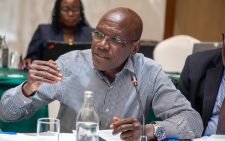Why reforms are critical in sustaining devolution

Nearly 15 years after the advent of devolution under a new Constitution, counties have made remarkable progress establishing themselves as distinct political units. However, significant challenges continue hampering their service delivery capacity.
Core struggles include delayed national treasury disbursements, lower-than-expected own-source revenue collection, poor human resource management creating bloated public service, and pending bills stalling projects.
These challenges informed the design of the Second Kenya Devolution Support Program (KDSP II), a four-year initiative financed by Kenya’s government and the World Bank.
The programme strengthens county performance in financing, management, coordination, and accountability, implemented by 19 national ministries and all 47 counties.
National agencies provide technical support for reforms across three key areas: Sustainable Financing and Expenditure Management, Intergovernmental Coordination and Institutional Performance, and Oversight and Accountability.
A major reform automates the exchequer process. The National Treasury, Controller of Budget, and Central Bank are transitioning from manual requests to digital systems, reducing processing time for county requisitions.
To boost own-source revenue, the Commission on Revenue Allocation is developing revenue mapping guidelines, helping counties identify lucrative streams.
Only Machakos and Mombasa have successfully mapped revenues due to steep costs. A 2022 CRA study showed that counties could collectively generate Ksh216 billion but currently collect only Ksh59 billion – a Ksh157 billion shortfall.
KDSP II supports developing a cutting-edge Revenue Forecasting tool, ensuring data-driven, realistic projections. This enhances budget credibility and empowers counties to optimise collections through real-time analytics and adaptive policies, marking a transformative step toward smart fiscal governance.
The Controller of Budget is developing a Pending Bills Template requiring counties to create time-bound clearance plans with measurable targets. This framework systematically reduces liabilities while enforcing fiscal discipline and preventing future accumulations.
The programme supports developing the Human Resource Information System-Kenya (HRIS-K), integrating HR records and payroll.
With a unified government payroll, the system eliminates ghost workers through a single Unified Personal Number.
Through KDSP II support, Kenya achieved one unified payroll system in December 2024, transitioning from IPPD to HRIS-K. The system integrates with IFMIS, I-tax, and Central Bank Internet Banking.
HRIS-K addresses pension pain points by uploading required documentation digitally, eliminating manual processes blamed for inefficiency and corruption.
The writer is the Principal Secretary in the State Department for Devolution















